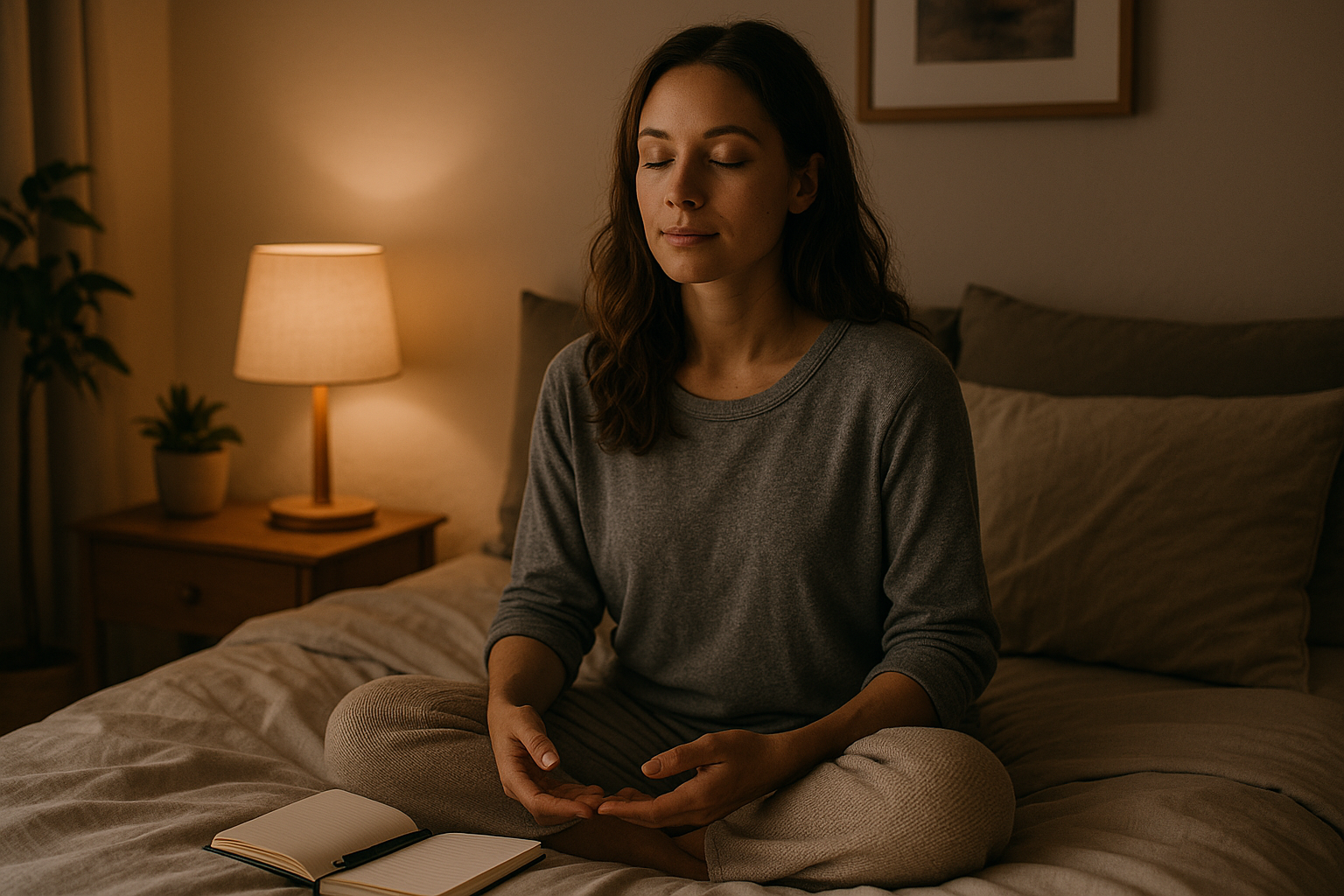The way you end your day matters just as much as how you begin it. While mornings set the tone, evenings are your chance to release stress, process emotions, and create closure. Without a mindful wind-down, your mind may stay busy into the night — affecting your sleep, mood, and clarity for the next day. Ending your day with peace is not about having the perfect routine — it’s about giving your mind and body permission to let go.
Why Evening Routines Matter
Evening is the natural time for slowing down. Your body begins to shift toward rest and recovery. A calming nighttime routine helps:
- Lower stress hormones like cortisol
- Improve sleep quality and duration
- Process thoughts and emotions from the day
- Transition from productivity to presence
- Signal safety and calm to your nervous system
This quiet time supports physical and emotional healing.
Step 1: Create a Gentle Transition
Give yourself 30–60 minutes to move from “doing” to “resting.” Start with:
- Dimming the lights
- Turning off screens
- Changing into comfortable clothes
- Playing soft music or nature sounds
These environmental cues tell your body: it’s time to slow down.
Step 2: Do a Mental Unload
Journaling at night helps empty your mind. Try writing:
- What went well today?
- What’s still on my mind?
- What can wait until tomorrow?
- What am I letting go of tonight?
This simple habit reduces racing thoughts and helps you feel emotionally lighter.
Step 3: Move Tension Out of Your Body
Even five minutes of gentle movement can release stored tension. Try:
- Forward folds
- Neck rolls and shoulder stretches
- Legs-up-the-wall pose
- Light yoga or slow walking
Let your breath guide your movement — slow, steady, and intentional.
Step 4: Practice a Moment of Stillness
Before sleep, take a few minutes of silence. This could be:
- Meditation
- Breathwork
- Sitting with your hand on your heart
- Simply lying still and observing your breath
This pause helps you reconnect with yourself after a busy day.
Step 5: Set a Closing Intention
Just as morning intentions guide your day, evening intentions help close it. You might say:
- “I release what I cannot change.”
- “Today is complete, and I did my best.”
- “I choose rest and renewal.”
This practice gives you a sense of emotional closure and self-acknowledgment.
Step 6: Protect Your Sleep Space
Create a bedroom environment that supports deep rest:
- Cool temperature and dim lighting
- No screens or work materials nearby
- Calming scents like lavender or chamomile
- Clean, comfortable bedding
Your bedroom should feel like a sanctuary — safe, quiet, and nurturing.
Step 7: Let Go of the Need to Finish Everything
You don’t need to complete every task or solve every problem before resting. Progress happens over time. Give yourself permission to stop for the day. Trust that what matters will be waiting when you wake.
Final Thought: Peace Isn’t Found — It’s Created
Ending your day with peace is a practice — not a destination. With small, intentional rituals, you can close each day with presence, care, and gentleness. You don’t need hours or perfection — just a few quiet moments to say, “I’m here. I’ve done enough. I am ready to rest.”
